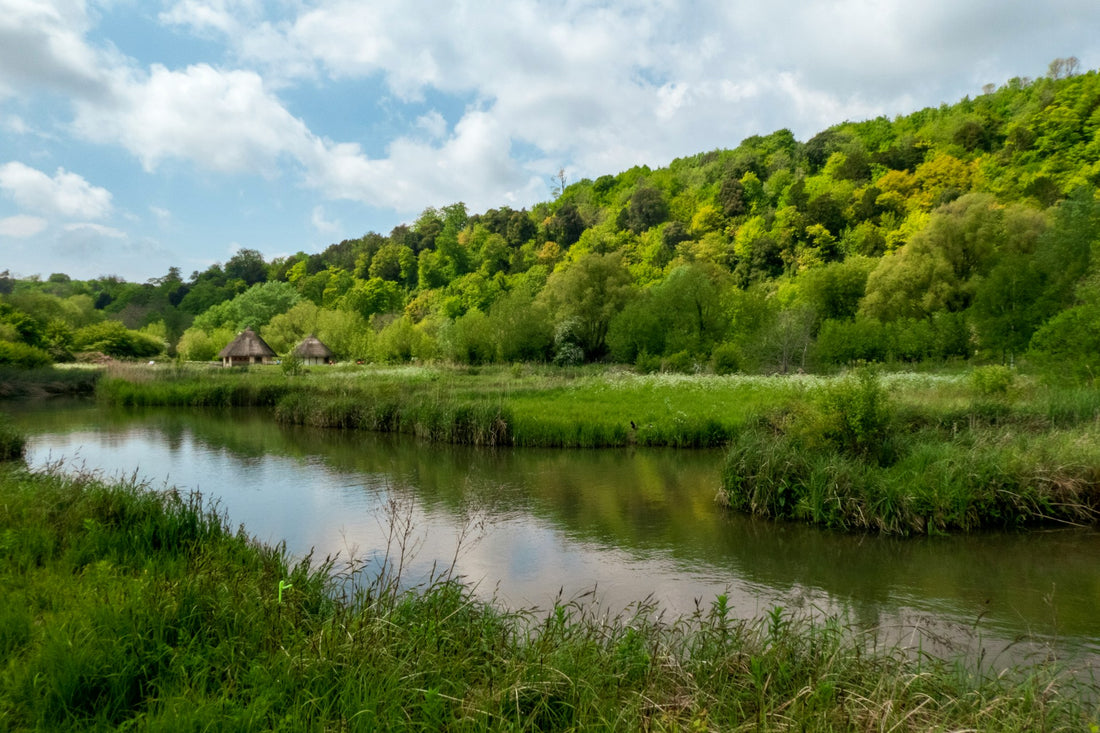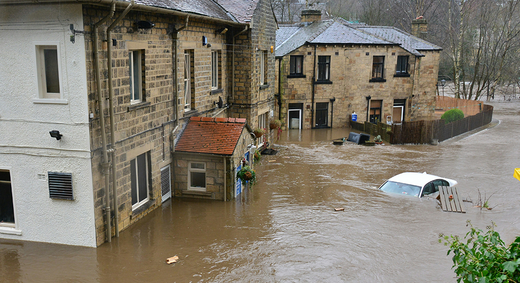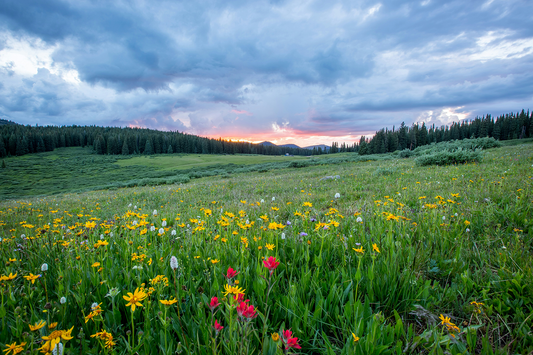
What are the current climate issues in the UK?
Share
1) The Rising Tide: Addressing Coastal Erosion in the UK
Coastal erosion is a growing concern in the UK, exacerbated by rising sea levels and increasingly severe storms resulting from climate change. The threat to coastal communities, infrastructure, and economies is significant, requiring immediate and sustained action to mitigate the impacts.
Current Situation
Recent data reveals that the UK coastline is eroding at an alarming rate. Areas such as Norfolk and Cornwall have seen sections of their coastlines disappear rapidly, impacting thousands of homes and businesses. The Environment Agency has projected that up to 7,000 properties could be lost to erosion over the next two decades if no measures are taken. These losses not only affect property values but also displace communities and disrupt local economies.
Building Resilience
Addressing coastal erosion involves a mix of engineering solutions and community-based approaches:
- Infrastructure Solutions: Building seawalls, groynes, and breakwaters can offer protection to specific areas. These structures can be expensive and require regular maintenance but are effective in preventing immediate erosion.
- Community-Based Approaches: Dune restoration and planting native vegetation help stabilize the coastline naturally. These methods are cost-effective, enhance local biodiversity, and provide a sustainable solution to erosion.
- Policy Recommendations: It is crucial for policies to focus on sustainable development. Avoiding construction in high-risk areas, implementing managed retreat where necessary, and increasing funding for coastal defense projects are essential steps. Additionally, policies that promote renewable energy can help mitigate the broader impacts of climate change, reducing stress on coastal areas.
How You Can Help
Individuals can take several actions to support coastal resilience:
- Support Environmental Organisations: Contribute to or volunteer with groups dedicated to coastal protection and restoration.
- Participate in Local Projects: Engage in community initiatives such as beach clean-ups and dune planting to help protect and restore coastal areas.
- Advocate for Policy Changes: Contact local representatives to push for stronger coastal defence policies and increased funding for resilience projects.
Coastal erosion poses a serious threat to the UK, but through a combination of engineering, community efforts, and sound policies, we can protect our coastlines and build resilience against future climate impacts. Collective action is essential to safeguard our coastal communities and heritage.
2) Heatwaves in the UK: Preparing for a Hotter Future
Heatwaves in the UK are becoming more frequent and severe, posing significant risks to public health, infrastructure, and the environment. As global temperatures continue to rise, it is crucial to develop strategies to cope with extreme heat and protect vulnerable populations.
Current Situation
The UK has experienced record-breaking temperatures in recent years, with the summer of 2022 seeing highs of 40°C. Heatwaves can lead to serious health issues, such as heatstroke, dehydration, and exacerbation of pre-existing conditions, especially affecting the elderly and those with chronic illnesses. The economic impact is also substantial, with increased energy demand straining power grids and affecting productivity.
Building Resilience
Developing resilience to heatwaves involves several strategies:
- Urban Planning: Integrating green spaces, increasing tree cover, and implementing green roofs and walls can help reduce the urban heat island effect. These measures not only cool the environment but also improve air quality and enhance urban aesthetics.
- Public Health Initiatives: Establishing heatwave early warning systems can alert the public to upcoming extreme heat events. Community cooling centres provide safe places for vulnerable populations during heatwaves. Public awareness campaigns are essential to educate people about the dangers of extreme heat and how to stay cool and hydrated.
- Energy Solutions: Promoting renewable energy sources and improving energy efficiency can reduce the strain on power grids during heatwaves. Encouraging the use of solar panels, wind turbines, and energy-efficient appliances helps mitigate the effects of extreme heat while reducing carbon emissions.
How You Can Help
Individuals can contribute to heatwave resilience by:
- Supporting Green Initiatives: Get involved in or donate to urban greening projects that aim to increase green spaces and tree cover in cities.
- Reducing Carbon Footprints: Adopt energy-efficient practices at home, such as using LED lighting, insulating buildings, and reducing water usage.
- Community Engagement: Participate in local preparedness efforts, such as checking on neighbours during heatwaves and supporting the establishment of cooling centres.
Preparing for a hotter future requires a comprehensive approach involving urban planning, public health measures, and sustainable energy practices. By working together, we can mitigate the impacts of heatwaves and protect our communities from the dangers of extreme heat.
3) Flooding in the UK: Strengthening Defences Against Increased Rainfall
Flooding is a significant and increasing threat in the UK, driven by climate change and resulting in more intense and frequent rainfall. Floods cause extensive damage to homes, infrastructure, and economies, necessitating robust flood defence strategies.
Current Situation
The UK has experienced several severe flooding events in recent years. For example, the floods in Yorkshire and the Midlands in 2019 caused widespread damage and disruption, affecting thousands of homes and businesses. The Environment Agency estimates that around 5.2 million properties in England are at risk of flooding, highlighting the urgent need for effective flood management.
Building Resilience
Building flood resilience involves a combination of structural and natural approaches:
- Structural Defences: Constructing flood barriers, levees, and improved drainage systems can protect urban and rural areas from floodwaters. These defences must be regularly maintained and upgraded to remain effective.
- Nature-Based Solutions: Restoring wetlands, reforesting areas, and creating floodplains can naturally absorb excess water, reducing flood risks. These methods are sustainable and provide additional environmental benefits, such as enhanced biodiversity.
- Policy Approaches: Integrating flood risk management into urban planning ensures that new developments are designed to withstand flooding. This includes updating building codes and zoning laws to prevent construction in high-risk areas. Governments must also invest in research and development to improve flood prediction and response capabilities.
How You Can Help
Community involvement is crucial in building flood resilience:
- Volunteering: Join local environmental groups working on flood prevention and mitigation projects, such as wetland restoration or tree planting.
- Supporting Conservation Projects: Donate to or participate in initiatives aimed at preserving and restoring natural flood defences.
- Advocating for Policy Changes: Engage with policymakers to promote stronger flood management regulations and increased investment in flood defence infrastructure.
Flooding poses a significant and growing risk to the UK, but through a combination of engineering solutions, natural defences, and strong policies, we can build resilience and protect our communities. Proactive measures and community involvement are essential to mitigate the impacts of increased rainfall and ensure a safer future.
4) Biodiversity Loss in the UK: Protecting Our Natural Heritage
The UK is facing a biodiversity crisis, with many species and habitats under threat due to climate change and human activities. Biodiversity is crucial for ecosystem health and resilience, making its protection a priority for sustainable development.
Current Situation
Many species, including the hedgehog, red squirrel, and various bird species, are experiencing significant population declines. Habitat loss, pollution, and climate change are major drivers of this trend. The State of Nature Report 2023 highlighted that 41% of UK species have declined since 1970, underscoring the urgent need for action to protect and restore biodiversity.
Building Resilience
Efforts to protect and enhance biodiversity include:
- Conservation Efforts: Protecting and restoring natural habitats is crucial. Initiatives such as rewilding projects, creating wildlife corridors, and preserving existing protected areas help maintain healthy ecosystems and support diverse species.
- Sustainable Practices: Promoting sustainable agriculture and forestry practices that support biodiversity can help maintain healthy ecosystems. This includes reducing pesticide use, supporting organic farming, and encouraging agroforestry, which integrates trees and shrubs into farming systems to enhance biodiversity and productivity.
- Community Involvement: Engaging citizens in conservation through activities like citizen science projects, habitat restoration efforts, and biodiversity monitoring can make a significant impact. Local communities play a vital role in protecting their natural environments and promoting sustainable practices.
How You Can Help
Individuals can actively contribute to biodiversity conservation:
- Participating in Conservation Projects: Join or donate to organizations focused on habitat restoration and species protection. Volunteering with local conservation groups helps support efforts to protect and restore biodiversity.
- Adopting Sustainable Practices: Support sustainable agriculture by buying organic and locally-produced food. Reduce the use of products harmful to the environment, such as single-use plastics and non-recyclable materials.
- Engaging in Citizen Science: Participate in biodiversity monitoring programs and report sightings of wildlife to local conservation groups. Citizen science projects provide valuable data for researchers and help raise awareness about the importance of biodiversity.
Protecting biodiversity is essential for maintaining healthy ecosystems and building resilience against climate change. Through collective efforts, we can preserve our natural heritage for future generations. By supporting conservation initiatives, adopting sustainable practices, and engaging in community projects, individuals can make a significant difference in protecting and enhancing biodiversity.
5) Urban Resilience: Adapting UK Cities to Climate Change
Cities are particularly vulnerable to the impacts of climate change, including extreme weather events, air quality issues, and heat islands. Building urban resilience is crucial for ensuring sustainable development and protecting urban populations from the adverse effects of climate change.
Current Situation
UK cities like London, Manchester, and Birmingham are facing increasing challenges due to climate change. These include frequent flooding, heatwaves, and deteriorating air quality. Existing infrastructure is often inadequate to cope with these changes, highlighting the need for comprehensive urban resilience strategies.
Building Resilience
Urban resilience can be enhanced through:
- Sustainable Urban Design: Implementing green roofs, permeable pavements, and energy-efficient buildings can mitigate the impacts of climate change. Green infrastructure, such as parks and gardens, helps reduce the urban heat island effect, manage stormwater, and improve air quality.
- Public Transportation Improvements: Expanding and modernising public transport networks can reduce emissions and improve air quality. Encouraging the use of bicycles and walking through safe and accessible infrastructure is also vital for reducing the reliance on cars and lowering urban pollution levels.
- Community-Based Planning: Engaging residents in resilience planning and decision-making processes ensures that local needs are addressed. Community-led initiatives, such as neighbourhood resilience groups, foster cooperation and preparedness, making communities more robust and adaptable to climate challenges.
How You Can Help
Individuals can support urban resilience efforts by:
- Supporting Green Projects: Get involved in or donate to urban greening projects and initiatives aimed at improving public transportation. Volunteering with local organisations that focus on urban sustainability can also make a significant impact.
- Adopting Sustainable Living Choices: Reduce personal carbon footprints by using public transport, cycling, or walking, and by conserving energy at home. Simple actions like reducing water usage, recycling, and minimising waste contribute to a more sustainable urban environment.
- Engaging in Local Planning: Participate in local government meetings and resilience workshops to contribute to urban planning decisions and advocate for stronger resilience measures. Community involvement ensures that policies reflect the needs and priorities of residents.
Adapting cities to climate change requires a comprehensive approach involving sustainable design, improved transportation, and community engagement. By working together, we can create urban environments that are resilient and sustainable for future generations. Building urban resilience is not only about infrastructure but also about fostering a culture of sustainability and preparedness among residents.









